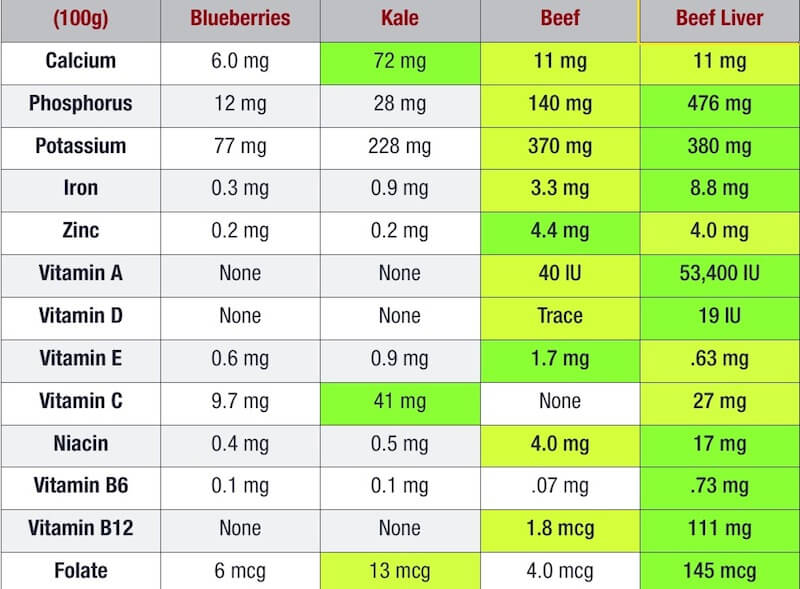Plant foods certainly can be nutrient dense, and meat can as well. They can both also be fairly low in nutrient density. The thing is, different plants, different meats, different cuts, etc aren’t all identical.
The thing to also remember is nearly nothing is “nutrient dense” in all nutrients. Some things are incredibly dense in a certain set of nutrients, and very low in others, that a different food may be high in (while low in the others), and there are some that have a wide range of nutrients but not in particularly high levels of anything.
A lot of advisors around though do like to focus on a particular nutrient, and so will tout a particular food or type of food as nutrient dense without really giving the full picture. What is high in Vitamin B2 isn’t necessarily high in Vitamin A or Mg. What is high in Iron, isn’t necessarily high in DHA, etc. There are some rating systems out there even that exaggerate or diminish the value of particular nutrients for seemingly arbitrary reasons, so it’s not always easy to tell what actually is nutrient dense, and in what sense.
I do like Mat Lalonde’s approach on this matter and his calculations. You can find his lists of “groups” or “categories” of foods listed by average nutrient density and such, which typically puts Organ meets at the top, but the second spot goes to herbs/spices (a plant based food) and vegetables are up there, and some meats are lower than you’d expect. Regardless, he warns himself it’s not really appropriate to go for these numbers alone, since it doesn’t tell the whole picture, and depending on your goals and context, different nutrients are important, which is why his old site, and now optimal nutrition, provide sets of lists of nutrient dense foods (more particular than the categories) based on situations and needs, not just overall.
There is something to be said though for the concept that different contexts simply require different nutrients or nutrients in different amounts.
Take Vitamin C for example. It was long held you’d get scurvy without Vitamin C, but that was disproven nearly a century ago in the context of a very low carb diet / meat based diet. The reason wasn’t certain at the time, but the most credibly explination I’ve heard seems pretty straight forward: Vitamin C is for removing oxidants before they do damage to the body, which are produced largely from the break down and burning of carbohydrates in the body (more particular than that, I think, but I’m going with it). Without that process, or with that process significantly reduced, we simply don’t need as much Vitamin C, if at all. I believe Dr. Phinney used to talk about this as well, but mention if people were really scared of not getting enough Vit C they could take a suppliment to make them feel safer, but it didn’t matter much on a “Well Formulated Ketogenic Diet”. As we also know, outside of ketosis most people require a gram or so less sodium, and potentially other salts. In different contexts, different things are necessary, and in different amounts. This also makes comparisons of foods very difficult since what a person needs is not the same for everyone, and can depend on the foods they eat overall.
Dr. Fung has made some good points in the past though that, for the most part, there isn’t a major nutrient deficiency problem. There’s actually a nutrient abundance (at least of certain nutrients), and people are in the wrong mindset of supplementing or seeking extra nutrients when that’s not the problem they have (but, as he’ll always say, if they do have a deficiency in a particular nutrient, do something about that). I think that makes sense too, though can be weighed against the advice and evidence that satisfying certain nutrient needs is also more satiating.
Another thing to clear up: Plant sources do have K2, particularly fermented vegetables. Natto is known for having particularly high amounts of K2.
Vitamin D is an interesting one since you can also make that yourself with enough sun exposure (and possibly if you don’t use soap in the shower too often?). But, that’s not easy for everyone everywhere, so finding other sources can be valuable.




